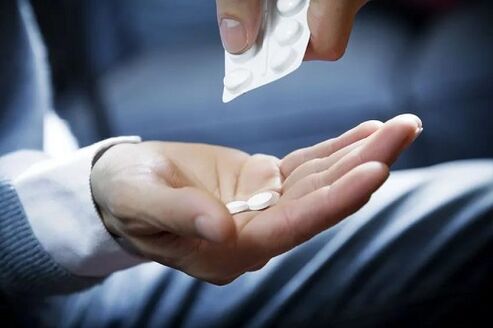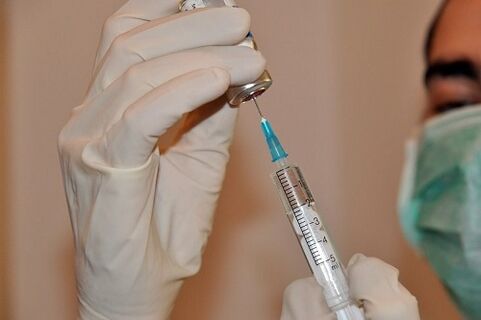Treatment of prostatitis in men includes the use of both medication and physical therapy. Massage therapy, glandular massage, and acupuncture may be prescribed as additional treatments for the patient. This is an integrated approach that allows not only to prevent exacerbations of the disease, but also to provide complete cure. Prostatitis medicine is always taken according to the schedule and is prescribed only after a thorough examination of the prostate gland.

Prostatitis medications only work when prescribed by a doctor correctly.
Fixed assets
As a rule, urologists prescribe certain drugs to patients with prostatitis. This allows you to deal with problems that arise in the prostate much faster. To improve her condition, drugs with antibacterial and immunostimulating effects, muscle relaxants, hormonal drugs and alpha blockers are used.
The treating physician prescribes an individual treatment regimen for each patient after careful study of the ultrasound analysis and results.

It is impossible to arbitrarily choose drugs for the treatment of prostatitis, as this can cause a deterioration not only in the condition of the prostate gland, but also in general health.
Antibiotic treatment of chronic prostatitis is not always indicated. If the patient has no symptoms of the disease and feels fine, this class of drugs may not be indicated. In this case, chronic prostatitis can be treated with herbal medicines and alpha blockers.
Antibacterial drugs
When chlamydia and other infections are detected, a fluoroquinolone can be used, which is highly bioavailable and can penetrate the prostate mucosa in the shortest possible time.
After detecting prostatitis, the patient is prescribed medication, including antibiotics. The regimen chosen by the doctor depends on the patient's condition.
In the absence of the desired effect from the use of fluoroquinolones, the doctor may prescribe a course of other drugs. If during the examination, the test shows the presence of chlamydia, the patient is recommended to take tetracycline. Their effectiveness is associated with the rapid penetration into the prostate of the active ingredients of the drug and with the inherent property of the drug to destroy pathogenic microorganisms as quickly as possible.
With repeated treatment, before treating recurrent prostatitis in men with medication, your doctor will recommend a new regimen of antibacterial medication, which usually includes a lower dose. If the selected medications are not effective, this may mean that they are not suitable for the patient or are prescribed incorrectly.
Preparations with an antibacterial effect are indicated only when pathogenic microorganisms have become the cause of prostatitis.
It should be remembered that bacteria are almost always present in one way or another in the human body. During the normal functioning of the immune system, they are dormant and pose no particular threat to health. The weakening of the immune system under the influence of other provoking factors leads to the activation of pathogenic microflora, which penetrates into the prostate tissue and leads to acute disease.

The acute phase of bacterial prostatitis requires the use of antibacterial agents. If such treatment is not carried out, inflammatory processes can go to the bladder, urethra and kidneys. There is evidence of a link between bacterial prostatitis and urolithiasis. The absence of antibiotic therapy leads to a chronic form of the disease, which is much more difficult and longer to treat.
Appointment principle
In acute prostatitis, the drug is prescribed immediately after a general examination and inquiry. As a rule, the urologist does not wait for the results of the tests and prescribes a treatment regimen that provides the first few days of macrolides, fluoroquinolones and aminoglycosides. Less commonly, patients are prescribed the antibiotic erythromycin, as these agents are unlikely to lead to mass destruction of microorganisms.
After the urologist receives the test results, he or she may change the regimen or include other medications in it. The use of only one drug is reasonable in cases of mild prostatitis. When choosing a drug, the age of the man and the presence of other diseases must be taken into account. If the patient has liver or kidney disease, the dose may be adjusted according to the degree of organ dysfunction.
The patient must inform the urologist about any medications he is taking or has taken relatively recently.
If for some reason a man takes antibiotics, the doctor should take this into account, as those drugs may not be effective.

If the universal program indicated for the patient does not have the desired effect, another program with a stronger effect can be used. To enhance the effect, antibiotics are prescribed as injections, so patients with acute prostatitis can be hospitalized. Treatment of prostatitis at home is carried out with antibacterial drugs in the form of capsules. In this case, it is extremely important to follow all the rules for receiving such funds. If you deviate from the plan, the therapy may not work. Cancellation or extension of the course is made only by the doctor.
Usually, properly selected antibacterial drugs show a positive effect by the third day after starting to take them. If symptoms persist, see a urologist to review the treatment regimen.

Endocrine preparations and suppositories
A correctly prescribed medication regimen helps to relieve the characteristic symptoms of prostatitis. First of all, the discomfort of prostatitis when urinating begins to disappear. When the wrong medications are used, pain, bladder emptying problems, and erectile dysfunction can persist. In some men, there is a tendency for a gradual decrease in potency. Usually, in the absence of immunomodulatory agents in the treatment regimen, the disease can return.
In the absence of a positive result in the treatment of chronic prostatitis, the patient is prescribed hormonal agents. They help reduce inflammation, restore erections.
These drugs, although effective, can have many side effects, so they should be used with caution, in accordance with the dosage recommended by your doctor.
With pyelonephritis, rectal suppositories can also be used as adjuvants. Such suppositories are generally well tolerated by patients because they contain natural ingredients. Means based on honey, propolis, a complex with extracts of anti-inflammatory and antiseptic herbs have a good effect.
Rectal suppositories help to reduce gland swelling, relieve pain and normalize blood microcirculation.
Today, in pharmacies, you can buy suppositories or preparations in the form of tablets made on the basis of sublimated bovine prostate. They improve the structure of prostate tissues, reduce inflammation and help accelerate the regeneration process.
To restore the body and strengthen the immune system, which is often weakened after prostatitis, it is shown to use complexes containing vitamins and trace elements. Patients may also be offered antioxidant drugs that help prevent the development of prostate hyperplasia and malignancy.



























